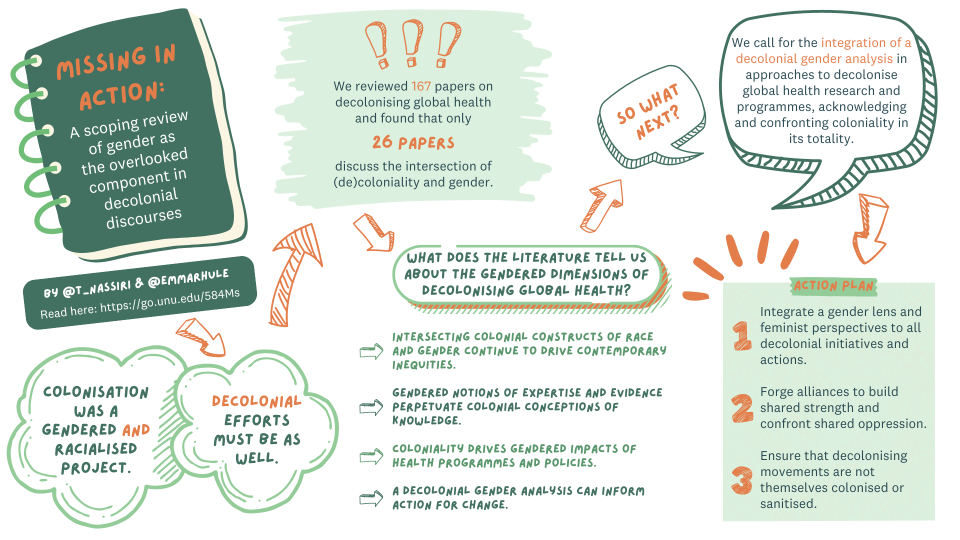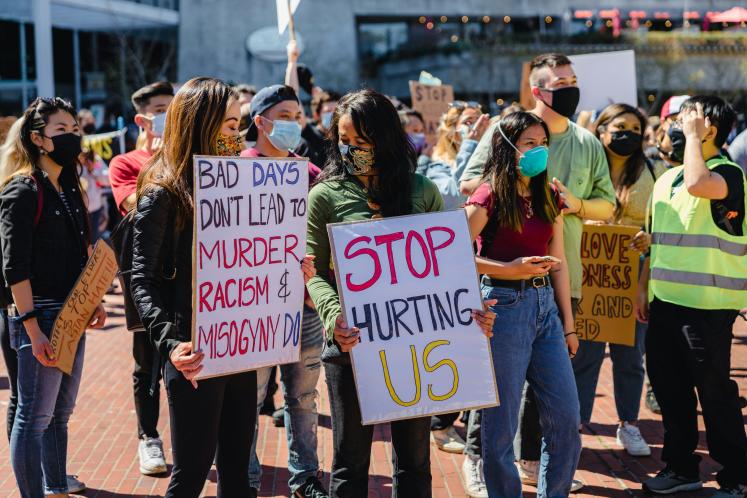The movements to decolonise global health rightfully demand that we as a field begin to treat the causes, not just the symptoms, of the colonial legacies within our systems and structures, legacies that drives power imbalances and health inequities at a global level. However, attempts and initiatives that fall short of synergistically treating all these root causes are doomed to fall short of their goals of reform and repair. Our recent scoping review published in BMJ Global Health finds that a concerning majority of the literature on decolonising global health falls short of acknowledging and addressing the colonial construction of gender as a key driver of imbalances, injustices, and inequities today.

In our review of 167 papers on decolonising global health, we find that only 53 papers contain any reference to gender and only 26 explicitly engage with the intersection of gender and (de)coloniality. This sub-set of papers spans four themes which draw a direct line between historical mechanisms of coloniality and present-day impacts on health research, services, and outcomes:
- Intersecting colonial constructs of race and gender remain potent driving forces of contemporary health inequities, manifesting as social, political, commercial, and economic determinants of health amongst others
- Gendered norms and prejudices are embedded within colonial notions of evidence and expertise, refuting the claim to objectivity made by colonial epistemologies and the positivist paradigm traditionally favoured by global health.
- Coloniality, as both a legacy of and active successor to colonialism, actively drives gendered impacts and outcomes of health programmes and policies today.
- By generating insights on the causal and active link between the coloniality of gender and health inequalities, a decolonial gender analysis can inform collective action for change.
Whilst the disproportionate under-representation of gender in the decolonising global health literature is alarming, we do not assume that this alone will be a catalyst for change. Rather, we draw on the key themes of our review to put forward three calls to action:
- Integrate a gender lens and feminist perspective to all decolonial initiatives and actions.
- Forge alliances to build shared strength and confront shared oppression.
- Ensure that decolonising movements are not themselves colonised or sanitised.
Our decolonial journey is one of constant (un)learning, reflexivity, and iteration, as such, these reminders are as much for ourselves as they are recommendations for our peers. Applied in tandem and collectively, we hope our calls to action will contribute to a more conscious centring of gender as a crucial element of all initiatives to decolonise global health.
If you would like to learn more, please click here to read Missing in Action: A Scoping Review of Gender as the Overlooked Component in Decolonial Discourses: https://gh.bmj.com/content/9/4/e014235


